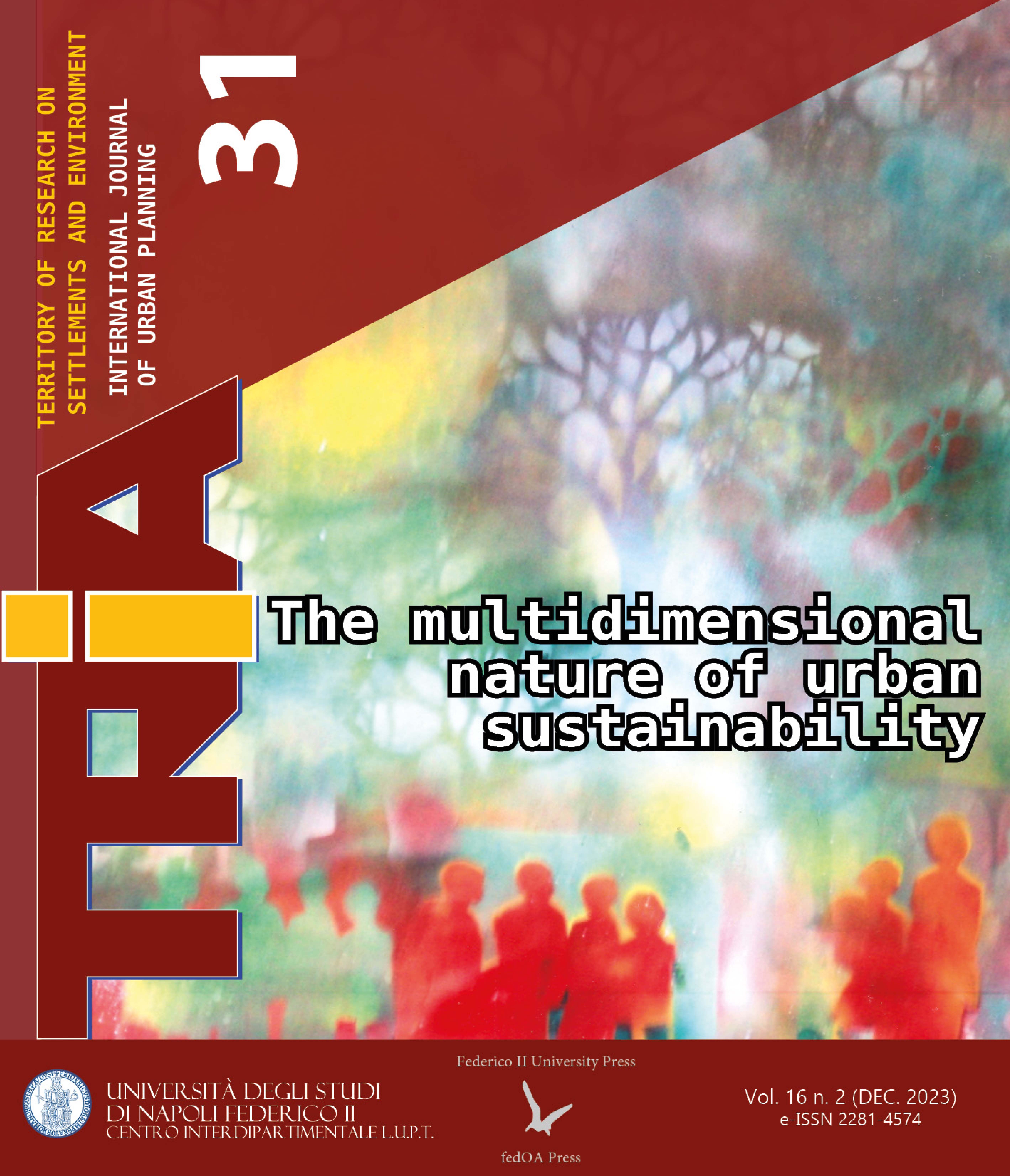Nature-Based Solutions to increase the resilience of urban ecosystems
DOI:
https://doi.org/10.6093/2281-4574/10598Abstract
To contemporary cities that are increasingly exposed to different types of environmental damage ranging from climate change to global shock disasters, it is crucial to sustain their resilience by aiming to regenerate the spatial and urban contexts within which social, environmental, and economic issues plague their livability. These urban scenarios, produced by human actions, are part of a geological era characterized no longer by natural factors but by anthropogenic factors; an era defined as the Anthropocene in which the human species is blamed for the territorial, biological, and climatic changes on the planet. Measures to be taken to counteract this environmental degradation are also to be sought in green methodologies and solutions to be implemented with a view to pursuing urban resilience goals, these goals can be pursued by integrating Nature-Based solutions into traditional urban planning tools so as to restore the balance between urban and natural ecosystems. The European Union has set out an ambitious goal to become carbon neutral by 2050. Achieving these goals will require not only transformation of our energy and transport systems, but measures across the economy as well as efforts to harness the potential of nature to contribute to both mitigating climate change and enhancing our resilience to its impacts to adopt a multidisciplinary approach. This paper aims an examination of green strategies and approaches for city regeneration and transformation.
Downloads
Downloads
Published
Issue
Section
License
Gli autori che pubblicano su questa rivista accettano le seguenti condizioni:- Gli autori mantengono i diritti sulla loro opera e cedono alla rivista il diritto di prima pubblicazione dell'opera, contemporaneamente licenziata sotto una Licenza Creative Commons - Attribuzione che permette ad altri di condividere l'opera indicando la paternità intellettuale e la prima pubblicazione su questa rivista.
- Gli autori possono aderire ad altri accordi di licenza non esclusiva per la distribuzione della versione dell'opera pubblicata (es. depositarla in un archivio istituzionale o pubblicarla in una monografia), a patto di indicare che la prima pubblicazione è avvenuta su questa rivista.
- Gli autori possono diffondere la loro opera online (es. in repository istituzionali o nel loro sito web) prima e durante il processo di submission, poiché può portare a scambi produttivi e aumentare le citazioni dell'opera pubblicata (Vedi The Effect of Open Access).


